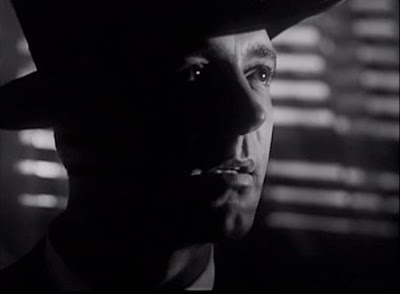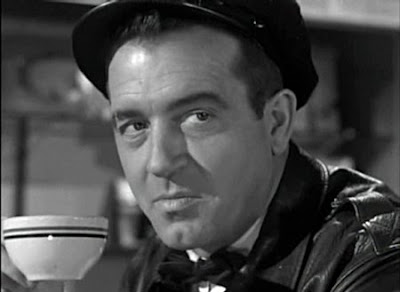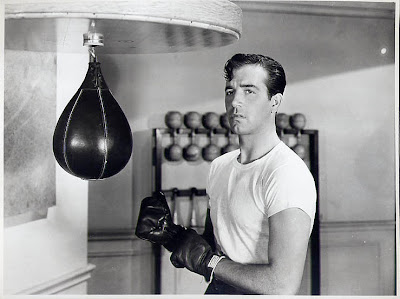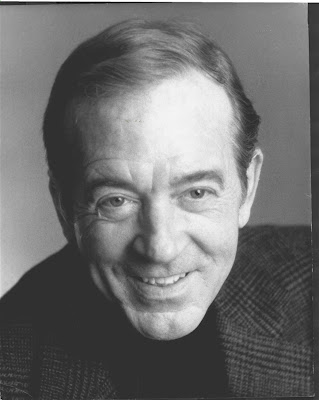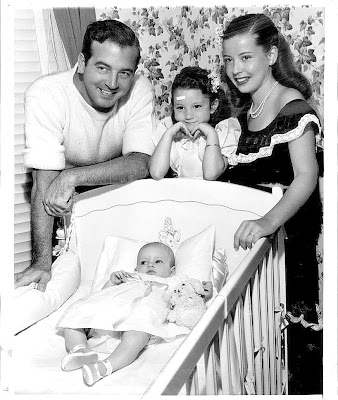 Lynn Bari (1919–1989)
Lynn Bari (1919–1989)Practically every Fox stockgirl went before the cameras of Pigskin Parade (1936). Stock players at Twentieth Century Fox were not nurtured to become movie stars. And, indeed, none would attain stardom — with the exception of Lynn Bari. Zanuck would only be indirectly responsible for Bari’s progression, but it would be his remarkable steerage of his studio that would afford her the opportunity to succeed.
 She was prominent in Roy Del Ruth’s On the Avenue, where she backed up Alice Faye in several Irving Berlin music sequences, spoke a line as a guest at a party, and had her portrait framed on Dick Powell’s dressing table.
She was prominent in Roy Del Ruth’s On the Avenue, where she backed up Alice Faye in several Irving Berlin music sequences, spoke a line as a guest at a party, and had her portrait framed on Dick Powell’s dressing table. Lynn Bari: Claire Trevor was the star [in "Walking Down Broadway"], a wonderful actress and a helluva nice girl. I was a bridesmaid at her first wedding. Claire Trevor had been Fox’s premiere ‘B’-picture actress for the past five years. By the time Walking Down Broadway was released, Trevor and the studio had parted ways. This break would prove most fortuitous for Lynn, for she’d instantaneously inherit her friend’s position at the Western Avenue lot. Lynn Bari had been a bit player in almost all of Claire Trevor’s Fox vehicles. While working in that minor capacity, she had come to be befriended by the star.
Lynn Bari: Claire Trevor was the star [in "Walking Down Broadway"], a wonderful actress and a helluva nice girl. I was a bridesmaid at her first wedding. Claire Trevor had been Fox’s premiere ‘B’-picture actress for the past five years. By the time Walking Down Broadway was released, Trevor and the studio had parted ways. This break would prove most fortuitous for Lynn, for she’d instantaneously inherit her friend’s position at the Western Avenue lot. Lynn Bari had been a bit player in almost all of Claire Trevor’s Fox vehicles. While working in that minor capacity, she had come to be befriended by the star. Claire Trevor, Phyllis Brooks and Lynn Bari in "Walking Down Broadway" (1938) directed by Norman Foster
Claire Trevor, Phyllis Brooks and Lynn Bari in "Walking Down Broadway" (1938) directed by Norman FosterClaire Trevor: “I couldn’t tell you when I first noticed Lynn; it was a gradual thing. She was a darling and we became good friends. As I’ve said, there wasn’t much time for a social life; so, there was never a chance to develop a big friendship. I liked Lynn enormously, though — well enough to have her as my bridesmaid. She wasn’t a pushy, self-centered actress like a lot of them were; that’s one of the things that I liked about her. I thought she had great potential. She was a serious actress and a good actress. I was crazy about her as a person and I thought her work was terrific.”
 Lynn figured much more prominently in the Barbara Stanwyck vehicle, "Always Goodbye", the first ‘A’ fi lm in which she would be cast as a second lead. She would continue to appear in this light, with occasional frequency, through 1941. Being a second lead in ‘A’ pictures was a two-sided affair for a young actress. In a positive respect, it afforded one the opportunity to work with top-notch talent on films that would gain them greater exposure. The downside of this casting was that the roles themselves were limited in nature, usually being one of three types: girlfriend to the female principal, someone’s sister, or “the other woman.” Bari herself would almost always portray the third kind.
Lynn figured much more prominently in the Barbara Stanwyck vehicle, "Always Goodbye", the first ‘A’ fi lm in which she would be cast as a second lead. She would continue to appear in this light, with occasional frequency, through 1941. Being a second lead in ‘A’ pictures was a two-sided affair for a young actress. In a positive respect, it afforded one the opportunity to work with top-notch talent on films that would gain them greater exposure. The downside of this casting was that the roles themselves were limited in nature, usually being one of three types: girlfriend to the female principal, someone’s sister, or “the other woman.” Bari herself would almost always portray the third kind. Darryl Zanuck would deal with Lynn in an uncharacteristically sympathetic manner for the better part of her tenure at Fox. Perhaps their “maternal bond” helps to explain why this would be so. Of course, Zanuck was also impressed by Bari’s professional dedication, her engaging personality — and her looks. Lynn Bari: Zanuck was terribly nice to me, he really was. At first, all I did was say “hello” to him. Being just a stockgirl at the studio, he really gave me my first break. He was always very kind. I liked him and I loved being at Fox.
Darryl Zanuck would deal with Lynn in an uncharacteristically sympathetic manner for the better part of her tenure at Fox. Perhaps their “maternal bond” helps to explain why this would be so. Of course, Zanuck was also impressed by Bari’s professional dedication, her engaging personality — and her looks. Lynn Bari: Zanuck was terribly nice to me, he really was. At first, all I did was say “hello” to him. Being just a stockgirl at the studio, he really gave me my first break. He was always very kind. I liked him and I loved being at Fox. You couldn’t tell Howard Hughes anything. He pretended not to hear when he didn’t want to. He was interesting if you were talking to him about his field of aviation. But I wouldn’t know how to fly a kite. I spent as little time with him as possible. However, he was very kind to me, I must say. When we would talk he’d kind of laugh at me in a nice way. He liked to dance with me, too. I can’t say that there was anything wrong with him. There were things about him I observed that I didn’t agree with, but everybody to their own taste. You hear all these wild stories about Hollywood and jumping in and out of the sack with this guy and that. They always treated me as a lady. None of that ever, ever happened to me at the studio. Oh, maybe they tried to make a pass or kiss me, but nothing else. I’m sure people participated in all those things when they wanted to. But I don’t think that anybody was forced.
You couldn’t tell Howard Hughes anything. He pretended not to hear when he didn’t want to. He was interesting if you were talking to him about his field of aviation. But I wouldn’t know how to fly a kite. I spent as little time with him as possible. However, he was very kind to me, I must say. When we would talk he’d kind of laugh at me in a nice way. He liked to dance with me, too. I can’t say that there was anything wrong with him. There were things about him I observed that I didn’t agree with, but everybody to their own taste. You hear all these wild stories about Hollywood and jumping in and out of the sack with this guy and that. They always treated me as a lady. None of that ever, ever happened to me at the studio. Oh, maybe they tried to make a pass or kiss me, but nothing else. I’m sure people participated in all those things when they wanted to. But I don’t think that anybody was forced. "Hotel for Women" was a big production. I enjoyed working on it and had a lot of fun. I really got along with everyone — except Elsa Maxwell. She never spoke to me. She only spoke to “God” or lovely ladies like Princess Grace, who banged every guy in Hollywood — (laughing) if you’ll excuse the expression.
"Hotel for Women" was a big production. I enjoyed working on it and had a lot of fun. I really got along with everyone — except Elsa Maxwell. She never spoke to me. She only spoke to “God” or lovely ladies like Princess Grace, who banged every guy in Hollywood — (laughing) if you’ll excuse the expression. "Kit Carson" was released through United Artists in August 1940. Under the direction of George B. Seitz, it proved to be a moneymaker. The oater gave second-billed Lynn a substantial part, one which she handled in a winning way. Playing heroine here also served to introduce her to Dana Andrews, who would go on to become a lifelong friend. (Dana was an awful nice guy.) The actor was also under long-term contract to Fox, working on loanout to Small. Dana Andrews had been but one of many additions to Fox’s stable of players during 1939 and 1940. Included among the newly-signed were Betty Grable, Carmen Miranda, Laird Cregar, George Montgomery, John Payne and John Sutton.
"Kit Carson" was released through United Artists in August 1940. Under the direction of George B. Seitz, it proved to be a moneymaker. The oater gave second-billed Lynn a substantial part, one which she handled in a winning way. Playing heroine here also served to introduce her to Dana Andrews, who would go on to become a lifelong friend. (Dana was an awful nice guy.) The actor was also under long-term contract to Fox, working on loanout to Small. Dana Andrews had been but one of many additions to Fox’s stable of players during 1939 and 1940. Included among the newly-signed were Betty Grable, Carmen Miranda, Laird Cregar, George Montgomery, John Payne and John Sutton. Bari’s career had so far encompassed many breaks, but "Sun Valley Serenade" came to be her luckiest one. The fates were truly working in Lynn’s favor here, for she was rushed into the film as a last-minute replacement for starlet Cobina Wright, Jr. The role she took over was that of blues singer Vivian Dawn. The temperamental Vivian descends upon Sun Valley at its outset, during a session at a New York recording studio. This setting is where the songbird develops a crush on Ted Scott (John Payne), the pianist in Phil Corey’s (Glenn Miller’s) orchestra. Next to Glenn Miller, no one benefited more from appearing in Sun Valley than twenty-one-year-old Bari.
Bari’s career had so far encompassed many breaks, but "Sun Valley Serenade" came to be her luckiest one. The fates were truly working in Lynn’s favor here, for she was rushed into the film as a last-minute replacement for starlet Cobina Wright, Jr. The role she took over was that of blues singer Vivian Dawn. The temperamental Vivian descends upon Sun Valley at its outset, during a session at a New York recording studio. This setting is where the songbird develops a crush on Ted Scott (John Payne), the pianist in Phil Corey’s (Glenn Miller’s) orchestra. Next to Glenn Miller, no one benefited more from appearing in Sun Valley than twenty-one-year-old Bari. Lushly captured by cinematographer Cronjager (a wizard) and sumptuously clothed by Travis Banton, she was finally being accorded the full movie-star “treatment”. By presenting her in such an alluring manner, Sun Valley highlighted the striking contrast between Lynn and the film’s leading lady, Sonja Henie.
Lushly captured by cinematographer Cronjager (a wizard) and sumptuously clothed by Travis Banton, she was finally being accorded the full movie-star “treatment”. By presenting her in such an alluring manner, Sun Valley highlighted the striking contrast between Lynn and the film’s leading lady, Sonja Henie. Every time the two were framed together Bari’s sexy, womanly qualities became more apparent — as did the diminutive Henie’s coquettish and cloying tendencies. The skater did have her charming ways, but those faded in Lynn’s presence. As Vivian Dawn, Bari punched up a formula “other woman” role with a special dynamism and shadings of vulnerability. Her performance would, in effect, make one question why a piano player would dump a woman of substance for a “Scandinavian Hillbilly” (as Vivian tagged her rival in a fit of pique).
Every time the two were framed together Bari’s sexy, womanly qualities became more apparent — as did the diminutive Henie’s coquettish and cloying tendencies. The skater did have her charming ways, but those faded in Lynn’s presence. As Vivian Dawn, Bari punched up a formula “other woman” role with a special dynamism and shadings of vulnerability. Her performance would, in effect, make one question why a piano player would dump a woman of substance for a “Scandinavian Hillbilly” (as Vivian tagged her rival in a fit of pique). Preview audiences reacted most favorably to Lynn’s appearance as Vivian. So did Zanuck. He sent Bari out on her first multi-city promotional tour, coinciding with Sun Valley’s release. Lynn was accompanied by costar John Payne, her brother’s childhood friend. The two gave countless radio and press interviews, in addition to attending local premieres of their film. Both experienced a moment of personal glory when they stopped off in Roanoke and were greeted by an ardent mob of hometown fans.
Preview audiences reacted most favorably to Lynn’s appearance as Vivian. So did Zanuck. He sent Bari out on her first multi-city promotional tour, coinciding with Sun Valley’s release. Lynn was accompanied by costar John Payne, her brother’s childhood friend. The two gave countless radio and press interviews, in addition to attending local premieres of their film. Both experienced a moment of personal glory when they stopped off in Roanoke and were greeted by an ardent mob of hometown fans.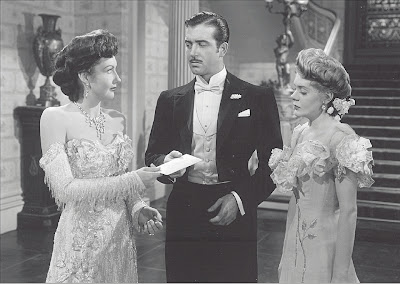 Lynn Bari, John Payne and Alice Faye in "Hello, Frisco, Hello" (1943) directed by H. Bruce Humberstone
Lynn Bari, John Payne and Alice Faye in "Hello, Frisco, Hello" (1943) directed by H. Bruce Humberstone Cornel Wilde and Lynn pose with Daisy, one of the four-legged players of The Perfect Snob" (1941) directed by Ray McCarey
Cornel Wilde and Lynn pose with Daisy, one of the four-legged players of The Perfect Snob" (1941) directed by Ray McCareyLynn Bari: He [Cornel Wilde] was anything but wild; a very serious person. He was married to a real little Puritan girl. Some of us were playing poker on location one day and he came up to me and said, “You gamble?” The Perfect Snob was Cornel Wilde’s debut film at Fox and his first lead assignment.
 The picture’s second lead, Anthony Quinn, would be signed by the studio once the film wrapped, remaining under contract for three years. Already a veteran of ‘B’ pictures, Quinn’s career rise would be even more protracted than Lynn’s, encompassing tenures at five different studios over a period of sixteen years (1937-53). His long climb to international acclaim would entail over sixty stepping stones, two of which (Blood and Sand and Snob) he shared with Bari.
The picture’s second lead, Anthony Quinn, would be signed by the studio once the film wrapped, remaining under contract for three years. Already a veteran of ‘B’ pictures, Quinn’s career rise would be even more protracted than Lynn’s, encompassing tenures at five different studios over a period of sixteen years (1937-53). His long climb to international acclaim would entail over sixty stepping stones, two of which (Blood and Sand and Snob) he shared with Bari. The source of 'The Falcon Takes Over' was the first-rate Raymond Chandler novel, 'Farewell, My Lovely'. None of the bite of the Chandler work was, however, to be found in its Falcon incarnation, a lackluster hodgepodge of mystery and comedy. Lynn played reporter Ann Reardon, a role that was too vapid for her to mold into something interesting. She was not at all a dominant presence here but, nonetheless, she received star billing alongside Sanders.
The source of 'The Falcon Takes Over' was the first-rate Raymond Chandler novel, 'Farewell, My Lovely'. None of the bite of the Chandler work was, however, to be found in its Falcon incarnation, a lackluster hodgepodge of mystery and comedy. Lynn played reporter Ann Reardon, a role that was too vapid for her to mold into something interesting. She was not at all a dominant presence here but, nonetheless, she received star billing alongside Sanders. Bari hadn’t even finished shooting "The Night Before the Divorce" when she embarked upon what she considers her worst film, "Secret Agent of Japan" (1942).
Bari hadn’t even finished shooting "The Night Before the Divorce" when she embarked upon what she considers her worst film, "Secret Agent of Japan" (1942). Lynn Bari married Sidney Luft on November 23, 1943, only two days after divorcing his first husband Walter Kane
Lynn Bari married Sidney Luft on November 23, 1943, only two days after divorcing his first husband Walter KaneLynn had met Sid Luft in the latter half of 1942 and they became a steady item during Bari’s filmmaking hiatus. Luft was four years older, born November 2, 1915. The ruggedly attractive six-footer had an outgoing, enthusiastic personality that Lynn found appealing.
 Lynn Bari: An autobiography would be too painful — I really couldn’t do it. I’ve thought about it, but I just couldn’t go back into that — the thing with my mother and the thing with Sid, and this last husband Dr. Nathan Rickles (whom she had divorced in 1972) — he was the worst and that’s too near. You know, the only good autobiography I read was Doris Day’s.
Lynn Bari: An autobiography would be too painful — I really couldn’t do it. I’ve thought about it, but I just couldn’t go back into that — the thing with my mother and the thing with Sid, and this last husband Dr. Nathan Rickles (whom she had divorced in 1972) — he was the worst and that’s too near. You know, the only good autobiography I read was Doris Day’s. Lynn went on to give numerous interviews during her final trimester, none particularly noteworthy. Something far more fascinating — and revelatory — was an article she herself had written for a summer issue of Movie Mirror magazine. Under the title, “How I Feel About Hollywood,” Bari penned the following: "When I first went into pictures, I was a 13-year-old youngster fresh from Roanoke, Va. And I was terrified. After working in pictures for more than 10 years, I’m still frightened.
Lynn went on to give numerous interviews during her final trimester, none particularly noteworthy. Something far more fascinating — and revelatory — was an article she herself had written for a summer issue of Movie Mirror magazine. Under the title, “How I Feel About Hollywood,” Bari penned the following: "When I first went into pictures, I was a 13-year-old youngster fresh from Roanoke, Va. And I was terrified. After working in pictures for more than 10 years, I’m still frightened. Every day brings a new problem, a new experience. I don’t think an actress is ever truly happy. The ambition that drives us all may bring us to sheer ecstasy one moment — and make us miserable the next. But I’m used to the roller-coaster feeling by this time. I’ve never been sorry that I chose this career. I’ve never been bored with my life in Hollywood. So many people find themselves in a rut. They become complacent and contented with their narrow outlook on life. Maybe they are happier than we are — if you call that happiness." -"Foxy Lady: The Authorized Biography of Lynn Bari" by Jeff Gordon (2010)
Every day brings a new problem, a new experience. I don’t think an actress is ever truly happy. The ambition that drives us all may bring us to sheer ecstasy one moment — and make us miserable the next. But I’m used to the roller-coaster feeling by this time. I’ve never been sorry that I chose this career. I’ve never been bored with my life in Hollywood. So many people find themselves in a rut. They become complacent and contented with their narrow outlook on life. Maybe they are happier than we are — if you call that happiness." -"Foxy Lady: The Authorized Biography of Lynn Bari" by Jeff Gordon (2010)

